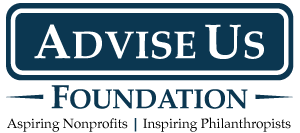
by Rosalyn Lambert | Jul 28, 2015 | Donor-Advised Funds, Featured |
Recurring gifts are nothing new. Numerous nonprofit organizations have shown big results with recurring gift donors. One study of online contributions found recurring gift donors gave 42 percent more annually than one-time contributors. But there is a problem – and an opportunity. One of the biggest areas of donation growth is donor-advised funds. But donor-advised fund advisors – the people you will need to solicit for a donation – cannot make a legally binding pledge using their fund. The advisors can only make “grant advisements.” This is an important legal restriction. But here’s a secret. Most donor-advised fund administrators fulfill almost all advisor grant advisements. That is, charities get the grant. Likely less than one percent of advisements get rejected. The few grant advisements going unfilled are almost always because: The donor requests a grant going to a nonprofit that isn’t a 501(c)3 charity; The donor is receiving something of value for the donation; or, in rare cases, The administrator has restrictions on what 501(c)3 charities can be supported (something donors would be made aware of when they create the fund). If you’re a 501(c)3 charity in good standing with the IRS and do not give anything of value in return for the donation, you should almost always get the grant. Where is the opportunity? Most donor-advised funds offer grant advisement pre-scheduling of recurring donations. This is a growing area with increasing numbers of scheduled contributions. It’s a big opportunity for you! Successfully Solicit Donor-Advised Fund Recurring Grants As you design your donor-advised fund recurring grant campaign there are three considerations (among standard ones) to keep top of mind....

by Rosalyn Lambert | Apr 22, 2015 | Charitable Remainder Trust, Donor Intent, Donor-Advised Funds, Featured |
Bequests are the third highest source of income for charity totaling $28 billion in 2013. While big bequests going to big nonprofits may make news, the average bequest is between $35,000 and $75,000 according to 2011 research by Blackbaud, Inc.* That’s funding that can make a big difference for a small- or mid-sized charity’s mission – especially when numerous donors give. While any charity can receive a bequest – smart charities try to improve their chances. Why? Because becoming a bequest successor is a real commitment from your donor –a vote of confidence in your mission. Financially it funds your mission now and later. Most people understand eventual bequest funding, but fewer understand what it means now. Donors who make bequest commitments average more than double the annual gifts of other donors. Even donors just considering a bequest give over 25% more annually than those who aren’t considering a bequest. As Emily Krauser points out in her groundbreaking research “For a fund raiser, being named in a donor’s will is a great way to build lifetime commitment to an organization. Increasing the number of individuals with a charity named in their wills not only will increase the future dollar amount given by bequest, but may also increase donor loyalty and inter-vivos giving [i.e. giving during the donor’s lifetime].” Bequest donors are among your most important donors – or they can be, if you cultivate them. Read on for ways you can improve your bequest program. [If you don’t have a bequest program it’s easy to start one and we can help (contact us) – it’s part of our charitable...

by Rosalyn Lambert | Jan 13, 2015 | Linked In |
Learn how donor-advised funds offer an important contribution to nonprofit fundraising #charity

by Rosalyn Lambert | Jan 13, 2015 | Donor Intent, Donor-Advised Funds, Featured |
In my life as a development officer I hated donor-advised funds. I felt they took money from my mission, made me miss out on my goals and just made things difficult. Who were these people with their funds – and how could I find them? As donor-advised funds have grown more popular – and I have become more familiar with them – I’ve moved from respect to real appreciation. I see donor-advised funds in an entirely new light because I better understand their important role – and potential – in charitable giving. Let’s address common criticisms first. Common Criticisms Money (That’s What I Want) I agree donor-advised funds seem like a charitable bank account or just a financial tool that saves taxes. But the overall annual rate of donor-advised fund contributions – the “payout rate” to charity – regularly exceeds the payout from private foundations. Sometimes the donor-advised fund payout rate is more than double the amount that private foundations donate with their 5% minimum. Waiting on a Friend If your concern is waiting for the money, then you should know in practice donor-advised funds compare favorably with many types of charitable giving vehicles, including private foundations, charitable remainder trusts and charitable lead trusts. In fact, many donor advised funds – including The Advise Us Fund – have rules that require donors to make advisements at least annually. Good Times Bad Times When it comes to tough financial times, think of donor-advised funds as deep pockets that keep our nonprofit missions motoring. In fact, donors often give more to donor-advised funds when they have an economic windfall, like a...





